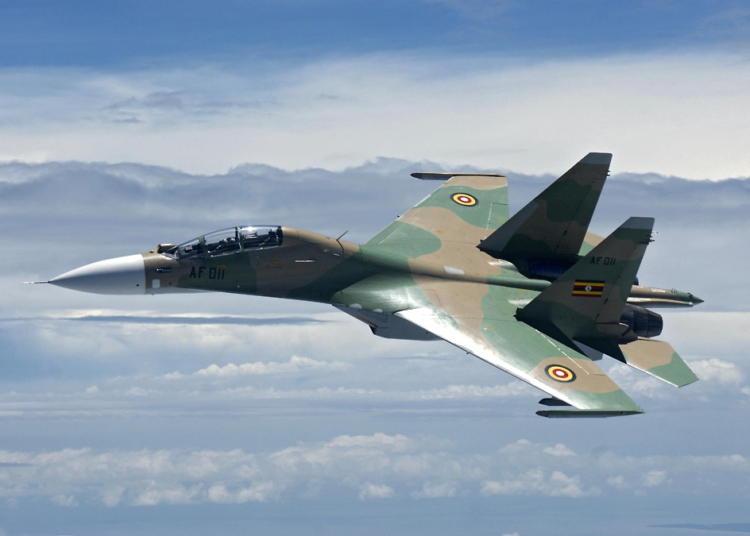The Uganda Peoples’ Defence Forces – Air Force (UPDF-AF) has flown two of its Su-30MK2 fighter jets to Belarus for maintenance and repair (MRO) activities. The aircraft arrived at the 558th Aircraft Repair Plant in Baranavichy on July 6, 2023.
The two Su-30MK2s are part of a fleet of six that the UPDF-AF acquired from Russia in 2011. The aircraft are used for a variety of missions, including air superiority, ground attack, and reconnaissance.
The MRO activities in Belarus are expected to take several weeks. During this time, the aircraft will be inspected, repaired, and updated with new software. The UPDF-AF has said that the MRO activities are necessary to ensure that the aircraft remains airworthy and mission-capable.
The 558th Aircraft Repair Plant is a specialized facility that is equipped to handle the maintenance and repair of Su-30MK2s. The plant has a long history of working with Russian-made aircraft, and it is considered to be one of the best MRO facilities in the world.
The arrival of the UPDF-AF Su-30MK2s in Belarus is a sign of the close military cooperation between the two countries. Uganda and Belarus have been working together on a number of defence projects in recent years, and the MRO activities for the Su-30MK2s are just the latest example of this cooperation.
The return of the Su-30MK2s to Uganda is expected to boost the country’s air defence capabilities. The aircraft is a valuable asset to the UPDF-AF, and they will play an important role in the country’s security.
Last year March, it was reported that the government of Uganda had contracted the Indian defence company Hindustan Aeronautics Limited (HAL) to provide maintenance and technical support for its fleet of Sukhoi Su-30MK multi-role fighter jets.
According to Indian High Commission, the agreement is the first major defence deal signed with Uganda after Prime Minister Narendra Modi unveiled the “10 Principles of India-Africa Engagement” in 2018. However, it appears that the business fell through.
Uganda and Russian state arms export agency Rosoboronexport signed an agreement in April 2011 for six Sukhoi Su-30 multirole fighter jets in a $740 million deal.
The business was finalized in May 2011 after a protracted negotiation over price. The first two aircraft were delivered in July 2011 (aircraft with tail numbers AF 011 and AF 015), followed by another two in October 2011 (AF 019 and AF 023). On 30 May 2012, the final two Su-30MKs were delivered (AF 027 and AF 031).
Uganda received the last two out of six Su-30 fighters in June 2012, from Russia, completing the delivery of six aircraft ordered the previous year. At the time, Uganda’s information minister Kabakumba Matsiko told Reuters that Uganda bought the fighters because they were needed to deal with any ‘eventuality’ arising from threats to Uganda’s security. “Every country needs to be well equipped to defend its strategic interests,” she said.
The aircraft, based at Entebbe, can carry air-to-air missiles as well as various general-purpose bombs for air-to-surface missions. The six Su-30MK2 are believed to have conducted missions against Al Qaeda targets in Somalia, to provide support for UPDF acting under the Africa Union/UN mission (AMISOM), and have reportedly launched airstrikes against opposition forces in South Sudan.
Besides the Sukhoi Su-30MKs other weapons Uganda has purchased from Russia include T-90 tanks, Kornet anti-tank missiles, anti-ship missiles, Infantry Fighting Vehicles (IFVs), and other components of the SU-30 combat aircraft. SIPRI data show that Uganda took delivery of 1,000 Kornet anti-tank missiles between 2012 and 2013.






